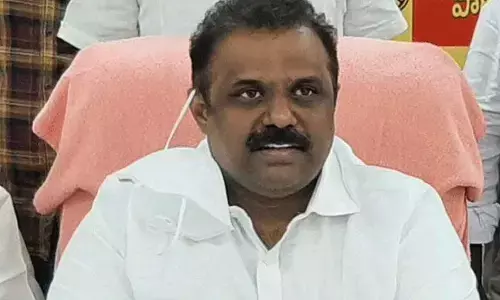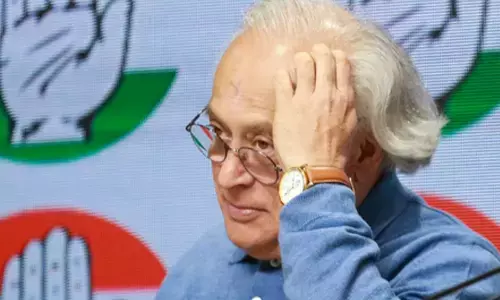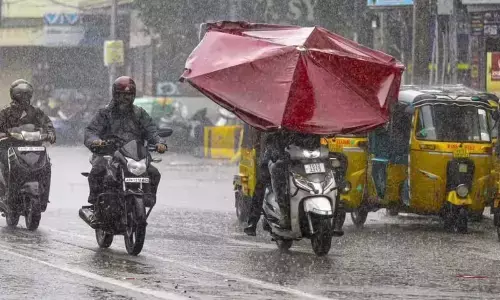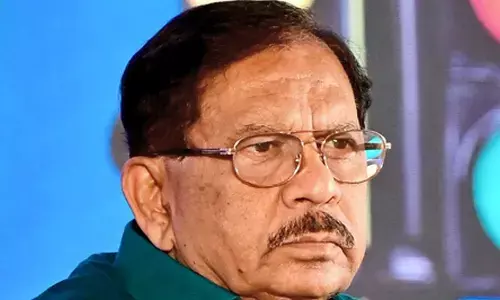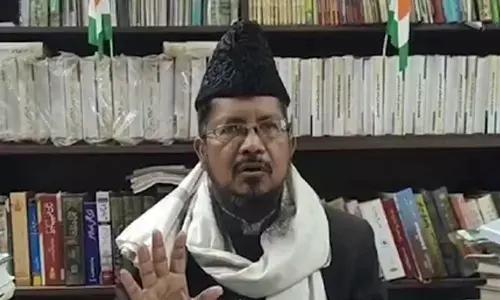Mysuru records less noise, air pollution this Deepavali, says KSPCB study
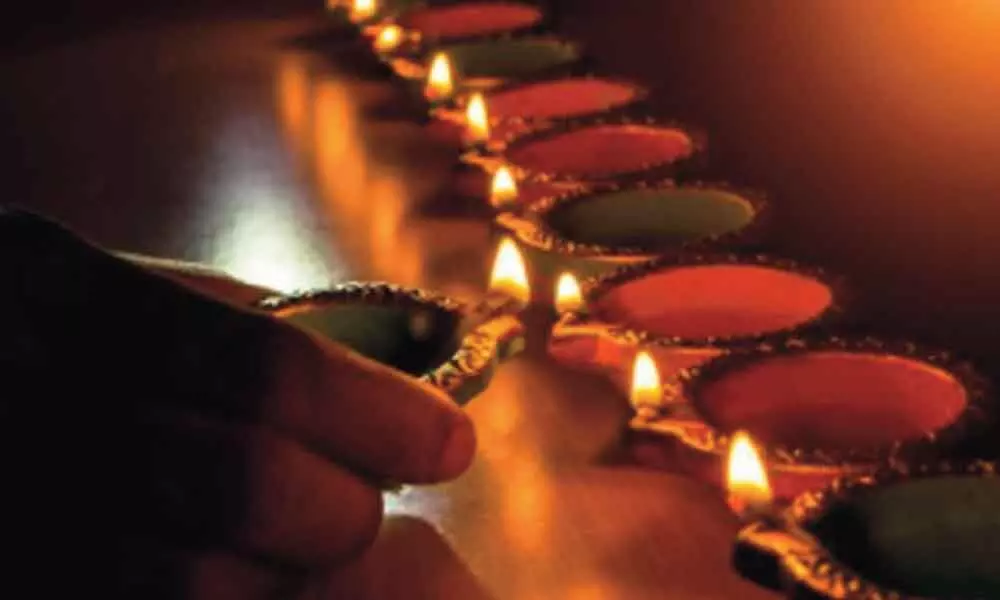
Mysuru records less noise, air pollution this Deepavali, says KSPCB study
Scientific analysis done by the Karnataka State Pollution Control Board (KSPCB) on Tuesday, based on the study conducted by it during three days of Deepavali, from 14 to 16 November, has revealed that air and noise pollution in Mysuru during the festival this year came down drastically compared to the previous year as a majority of people stayed away from bursting crackers due to the Covid-19 scare.
Mysuru: Scientific analysis done by the Karnataka State Pollution Control Board (KSPCB) on Tuesday, based on the study conducted by it during three days of Deepavali, from 14 to 16 November, has revealed that air and noise pollution in Mysuru during the festival this year came down drastically compared to the previous year as a majority of people stayed away from bursting crackers due to the Covid-19 scare.
The heritage city also lived up to its image as India's fifth cleanest city during Deepavali this year. According to city corporation health officer Dr Nagaraj D G, the firecracker waste the civic body collected during this festival was less than one third compared to previous years.
Speaking to The Hans India, Dr Prakash B M, regional environment officer of KSPCB, said that they had done ambient air quality status study at three locations in Mysuru during Deepavali. In the residential area near government first grade college of Kuvempunagar, on 14, 15 and 16 November the 'sulfur dioxide (SO2) measured in milligram per cubic meter' stood at 1.7 (14th November), 3.2 (15 November) and 4.6 (16 November); 'nitrogen dioxide (NO2) measured in milligram per cubic meter' they recorded during three days was 14.7, 17.3 and 19 respectively. And the concentration of 'particulate matter PM10 measured in milligram per cubic meter' recorded on these three days was 45, 49 and 36 respectively, and the concentration of 'particulate matter PM2.5 measured in milligram per cubic meter recorded was 10, 18 and 12 respectively, Mr Prakash said.
During Deepavali last year in the same place, on 27, 28 and 29 October 2019 the SO2 in milligram per cubic meter' they recorded was 2.2, 4.3, and 7 respectively; NO2 in milligram per cubic meter' they recorded 16.1, 22.5 and 26.2 respectively. And concentration of 'Particulate matter PM10 in milligram per cubic meter' recorded on these three days was 42, 52 and 64 respectively, and concentration of 'Particulate matter PM2.5 in milligram per cubic meter' recorded was 20, 26 and 30 respectively, Mr Prakash said.
As per the ambient noise level analysis done around KSPCB office at Hebbal during the three days "the level of sound in decibels on scale A-Leq dB (A)" recorded was 60.9, 63.8 and 66 respectively. And last year on 27, 28 and 29 October 2019 "Leq dB (A)- the level of sound in decibels on scale A" recorded in the same place was 72.7, 73.8, 75.2" Mr Prakash said.
MCC Health officer, Dr Nagaraj also informed that, on all three days during Deepavali this year, bursting of crackers had reduced by atleast 60 percent in Mysuru due to covid 19 pandemic situation. And every year they collected over three to four ton garbage of cracker waste separately in three days during Deepavali, but this year have collected less than a ton garbage of cracker waste, he said.
Dr Nagaraj added, "All the areas in Mysuru have reported a few cases of Covid 19. So people were aware of this. Some recovered from Covid and some were still recovering and their neighbors were aware of the situation and they did not want to disturb them. Another reason for quiet Deepavali was financial crunch due to Covid. So most did not burst crackers. Government's order allowing bursting of only green crackers also largely contributed to reduction in pollution level."



